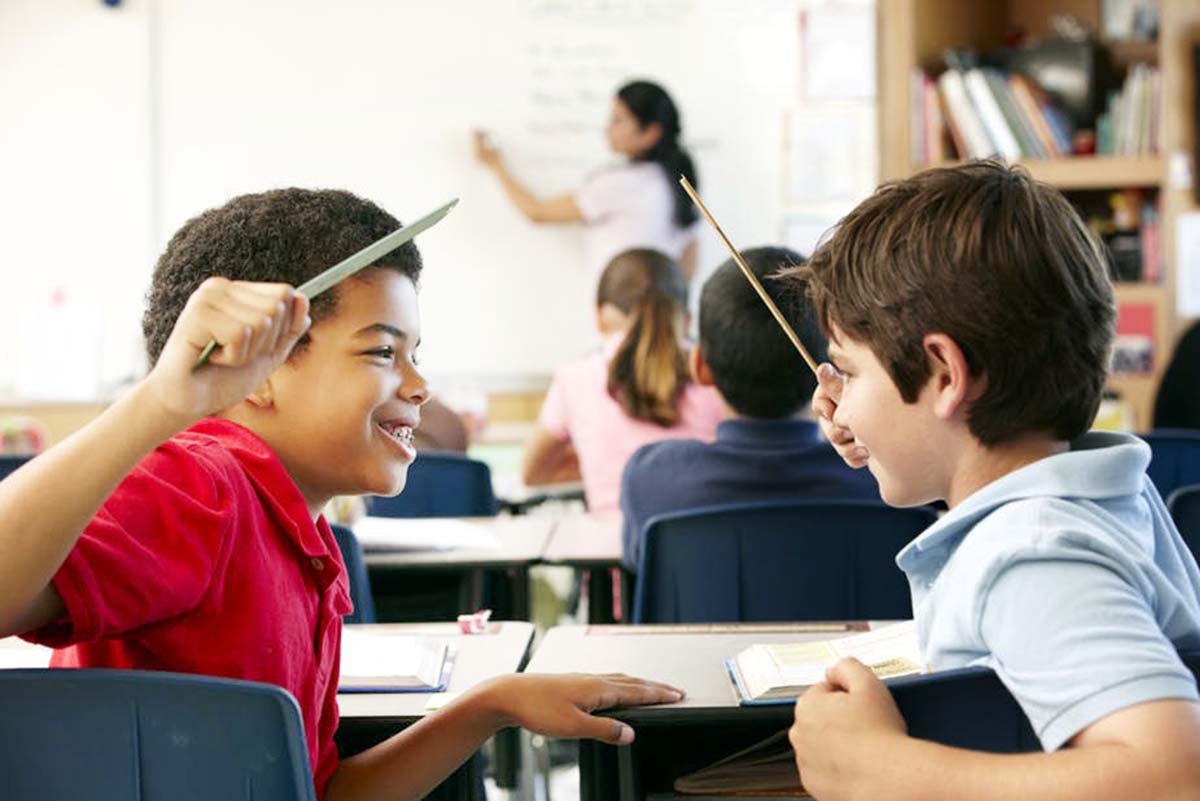Yogesh Khosla
Childhood means exploration, experimentation and persistent questioning about things and about natural phenomena. While doing so children may usually and innocently, break things, break rules, harm themselves and irritate elders. These are normal developmental activities of children which give them experiential learning and make them intelligent. While giving, loving, care and affection, good parenting at home and teaching young children in school, is also about making them aware of the consequences of their actions- largely for their own safety and also to avoid getting into trouble. When the activities of children cross the normal permissible limits and start causing disruption for them and for the parents and teachers, we need to wake up and take notice and give attention to the problem. If unchecked and uncorrected, such excessive misbehavior may turn into conduct disorders which are not easy to correct. A child with serious conduct problems usually grows up into a problematic adult- a life lost.
In children in the age group 6-10 years, some common conduct problems are stealing, lying, persistent severe disobedience, frequent and severe temper tantrums, setting fire, running from home, poor academic performance. In adolescents (11-18 years), common conduct problems are:
* Delinquent aggressive behavior often harming self or others
* Too often loud, aggressive arguments using abusive/ objectionable language
* Use of drugs/ alcohol/ smoking
* Frequent difficulties with law
* Poor academic performance. Often suspended/ expelled from school
ICD-10 (WHO) (International Classification of Diseases) identifies a conduct disorder as a “repetitive and persistent pattern of behavior, in which either the basic rights of others or societal norms are violated lasting at least six months”.
What can we do to handle misbehviour of our children effectively? Unfortunately, too many of us see harsh punishment- scolding using abusive/ insulting language, threatening and beating as the only way to deal with this problem. Overwhelming research in child psychology now points to extremely negative consequences of such harsh punishment. Most of the time, harsh irrational punishment results in increased behavioural problems, low self esteem and other mental health problems in children. We suggest here some effective ways to handle serious conduct problems of children. These suggestions are for teachers, parents and grandparents which includes almost everybody.
There are three stages where adult action is required in situations of conduct problems:
* Efforts to anticipate and prevent misbehaviour
* Actions to be taken during misbehaviour
* Steps to be taken afterwards- after the episode of misbehavior
Preventing Misbehaviour
Waiting for children to be spoiled and then taking corrective measures, is foolish. Good parenting means raising intelligent, healthy, well behaved children. It requires giving quality time, care and undivided attention to the children. Here are some suggestions for parents and children:
Be a good role model
If we shout or fight or use abusive language or lie in the presence of children, they learn the same behavior. If we want our children to behave properly, we have to learn to behave properly first.
* Without being intrusive and interfering, keep a close watch on children’ activities and their performance and know fully about their close friends. Most of the misbehavior and conduct problems of young children are unintentional and impulsive. In the case of serious conduct problems, some elder sibling, parent or teacher can anticipate and prevent the undesirable action, thus saving the child from getting into trouble.
* In consultation with children, devise some reasonable consequences of bad behavior. These consequences could be withdrawal of some benefits- something the child loves like playing with friends, watching TV etc. Or the consequence can be making the child do something useful which she/ he dislikes.
” Take the children away from electronic media like TV, smart phone, video games and encourage them to take part in supervised and well structured outdoor team activities like sports, dance etc.
* For serious conduct problems, teachers and parents need to work in close collaboration- sharing and discussing and making strategies together.
* If the problem is serious and comes in the category of conduct disorder, don’t wait and hesitate to take help from the experts- School Principal, Counselor, Child Psychologist or some other wise person.
During Misbehaviour
* Be calm and composed and take control of the situation firmly, with a protective demeanor.
* In a conflict situation, listen to the main offender and other participants patiently to understand clearly what happened and what was the underlying motivation. Validate each participant’s perspective and feelings.
* Explain calmly that the matter will be resolved fairly according to previously agreed upon logical consequences for the misbehavior.
After misbehaviour
Calmly, but firmly, implement previously agreed logical consequences/ mild punishment which can be depriving the child of something she wants or making her experience something she doesn’t want. Punishment can also include reprimand for the wrong action and warning about any future misbehavior. The offender can also be asked to apologize for her objectionable behavior.
In conclusion, we should understand that angry outbursts, cursing and frustration are not the right responses towards the problems of our children. There are no problems of children which can’t be solved with loving care and attention. Important is to find out why children misbehave and throw tantrums. It is also the responsibility of parents and teachers to learn and then teach their children essential Life Skills- how to manage emotions, how to make harmonious relationships, how to handle stress, how to solve problems. This is real education.
Trending Now
E-Paper


